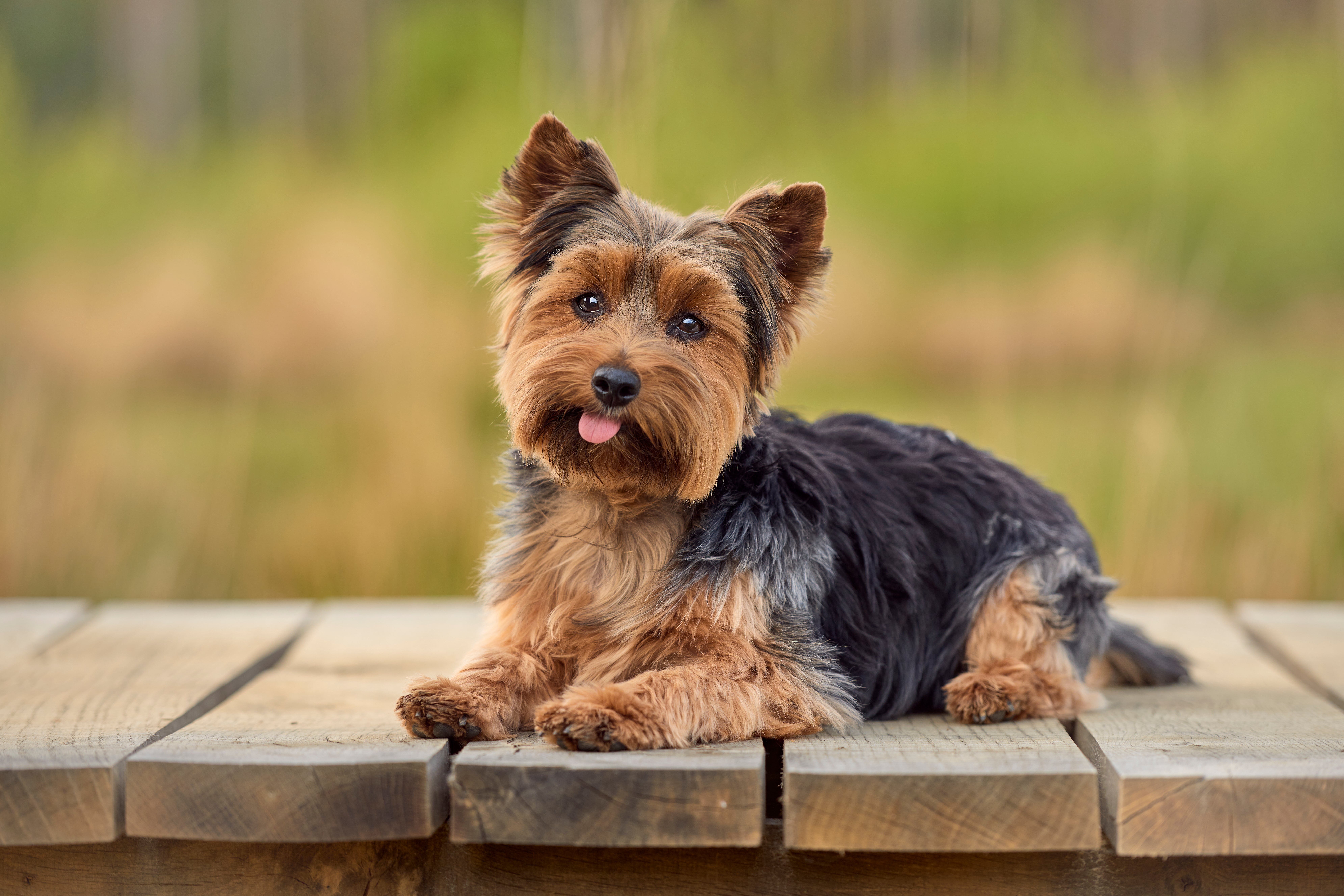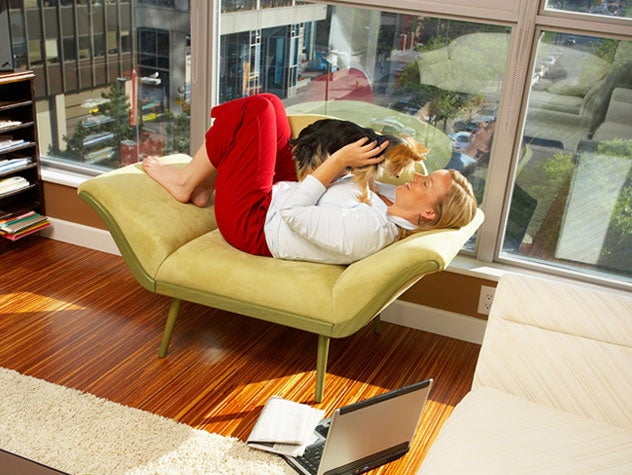Yorkshire Terrier
The Yorkshire Terrier has luscious locks that any celebrity would be envious of. This regal miniature canine king is intelligent and widely recognized as a dainty but feisty pup. Yorkies, as they are affectionately known, are a popular breed because of their size and hypoallergenic tresses.
Breed characteristics carousel
Learn More
Need to Know
- Great dog for non-experienced owners
- Basic training required
- Enjoys active walks
- Petite dog
- Some drool
- Requires frequent grooming
- Chatty and vocal dog
- Barks and alerts to visitors/anything unusual
- Could have issues with unknown dogs
- May need additional training to live with other pets
- May need additional supervision to live with children
- Good for city-dwelling
- AKC Registered Breed

Personality
Yorkies pack a lot of attitude into their small bodies. Lively, curious, and into everything, owners will have to get used to being tailed everywhere by this inquisitive shadow. These pups need a lot of stimulation. Long walks are helpful, but games and toys keep their busy brains occupied.
Scottish weavers brought a small terrier dog with them when immigrating from Scotland to Yorkshire and Lancashire during the 1850s. These Broken-Haired Scotch Terriers were bred with local terriers to create a working dog that quickly became popular as an effective factory and mining vermin killer. It was a bonus that the dog was small enough that it could be carried in its owner’s pocket. While the breed began as a working-class ratter, the Yorkshire Terrier soon moved up in social status and became popular with wealthy ladies as a companion dog. This popularity led to selective breeding with the goal of making them even more pint-sized. While the dogs got smaller, their coat length stayed virtually the same.
Since big things come in small packages as far as the Yorkie is concerned, this dog is a fit for an owner who doesn’t mind a bit of a rambunctious personality. They will require regular grooming. Yorkies don’t like to be alone, and so a homebody owner is perfect.
A short walk will please a Yorkie as long as he gets a good sniff around the block for some mental stimulation. Remember that Yorkshire Terriers aren't just lap dogs; they like to run, fetch, and play like any dog.
Yorkshire Terriers are perfect for any size home, whether a sprawling country estate or a studio apartment.
Get ready to count brush strokes, as a Yorkshire Terrier’s coat needs to be brushed daily to keep it healthy and shiny. If there is a topknot hairstyle, it should be removed, brushed out, and redone regularly. Rubber bands need to be removed so as not to destroy the dog’s beautiful coat. Once mastered, the daily grooming should take no longer than 15 minutes.
Yorkshire Terriers are quick-witted and can be taught basic commands easily. They might get distracted easily, though. They should be taught to walk on a collar and leash. Socialization in a class or other supervised setting with other small dogs is vital to keep them confident around other dogs.
Yorkshire Terriers are small and delicate, which makes them unfit dogs for families with small, active children. They do better with older children or families with no children.
The cost of a Yorkshire Terrier from a breeder is significantly more than the cost of adopting one from a local shelter or rescue. The adoption fee usually covers additional items such as spaying or neutering, vaccines, and microchipping.

Learn more about feeding and caring for your Yorkshire Terrier on Purina.
Did You Know?
- The Yorkshire Terrier was bred as a ratter, becoming so small they could fit in an owner’s pocket.
- The smallest ever dog was a Yorkie, who measured just over 2 inches tall.
- The smallest ever dog was a Yorkie, who measured just over 2 inches tall.


